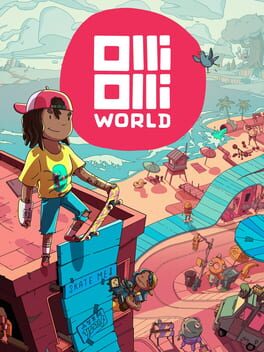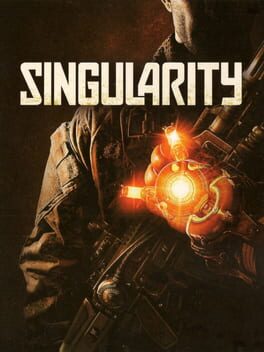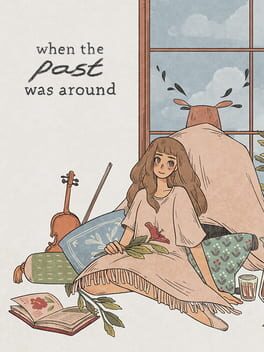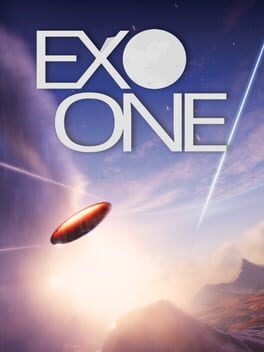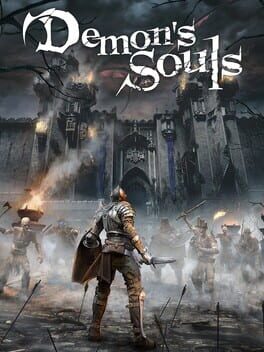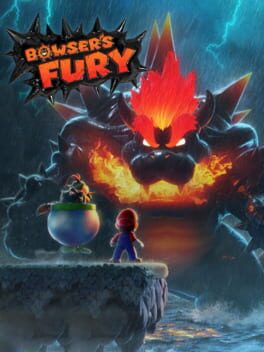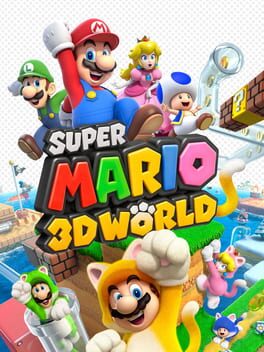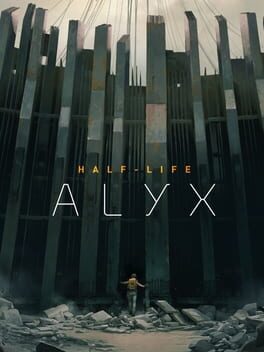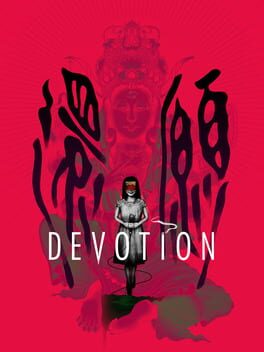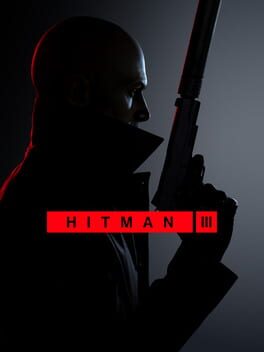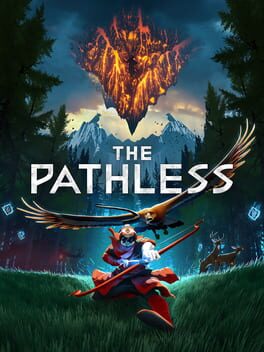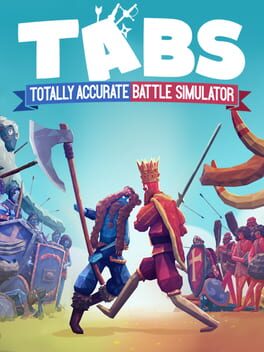kosmzone
2019
SmallBü's opening logo animation has more charm than many 'wholesome games' have in their entire run times, and the actual game never lets up. The animation studio brings an hyperactive energy to every motion depicted, making the hidden object progression, visual novel presentation, and mini-game extravaganza so much more livelier than its peers. Additionally, the game's anachronistic setting of Alligator New York City being home to a colorful cast where every character, even the background characters, is so visually distinctive and sharply designed that they all feel like they could be the character of their own game. Combined that with 2 Mello's swanky jazz composition, and you have one smoking stylish title.
The game's actual proceedings are less notable, although certainly humorous. The game is ostensibly centered around a mystery, and while intuiting the answer can be easily done within a few minutes of conversation, the actual reveal manages to feel genuinely sweet, and the true ending makes up for it, in terms of surprise. While a tad insubstantial, Later Alligator can't be accused of not knowing how to deliver the goods.
The game's actual proceedings are less notable, although certainly humorous. The game is ostensibly centered around a mystery, and while intuiting the answer can be easily done within a few minutes of conversation, the actual reveal manages to feel genuinely sweet, and the true ending makes up for it, in terms of surprise. While a tad insubstantial, Later Alligator can't be accused of not knowing how to deliver the goods.
2022
Uses a questionably legal (but totally rad!) recreation of the Adventure Time art style to conceptualize skating as a sport about expression, enlightenment, and above all, fun. The gameplay expresses this in different ways depending on skill level by demanding precision, style, and consistency to different degrees in its main and optional objectives. The game desperately needs some remappable controls and the campaign's difficulty curve is wonky, as it peaks in the penultimate chapter before mellowing out substantially, but at its core it's engaging enough to keep me coming back.
The story of the game is light on conflict and drama; the goal is to improve at skating for its own sake, more-or-less, but the cast at least provides a nice sense of community and comradery. An odd wrinkle, however, is the presence of some half-hearted complaints about capitalism; left unengaged as they are, such lines of dialogue only presents a missed opportunity to envision a revolutionary world where's one only concern could be just skating for fun. It's a small aspect of a great game, but I think worth pointing out to demonstrate how our cultural imagination can be limited even by deliberately unrealistic cartoon games, which I think is rather unfortunate.
The story of the game is light on conflict and drama; the goal is to improve at skating for its own sake, more-or-less, but the cast at least provides a nice sense of community and comradery. An odd wrinkle, however, is the presence of some half-hearted complaints about capitalism; left unengaged as they are, such lines of dialogue only presents a missed opportunity to envision a revolutionary world where's one only concern could be just skating for fun. It's a small aspect of a great game, but I think worth pointing out to demonstrate how our cultural imagination can be limited even by deliberately unrealistic cartoon games, which I think is rather unfortunate.
2010
Singularity is the forgotten middle child of the unholy trinity of 2010 anti-communist first person shooters, serving as both an uncanny synthesis of contemporaries Bioshock 2 and Call of Duty: Black Ops and as an eerie herald of Bioshock Infinite. To be fair, a time travel story could critique and examine the Soviet Union and the Russian Federation in a number of compelling ways, but this game cares far more about pulpy nonsense and how each component of your Time Control Glove affects its function. As a matter of fact, despite being generally humorless, Singularity is pretty open about being an unserious text, with English words ordained with visual, but not phonetic, cognates from Russian Cyrillic, on everything from the logo to diegetic motivational posters instructing students to 'яead for youя countяy.' In some ways, such vacuousness is a strength. A dash of camp helps dilute the nationalist propaganda, and in fact, the game's endings, thoroughly steeped in the high concept genre premise are so close to being great. They express a skepticism towards concentrated power that is unfortunately outweighed by their contempt towards displaying kindness to your fellow man, and the (unsubtitled) story that precedes it too flimsy and dryly presented to capitalize on them anyways.
One would hope that the gameplay would pick up the slack, but this is where we really start running into problems. The player is armed with left hand time superpowers (yay!) and two weapon loadout (boo!), but I solved 90% of combat situations with nothing but an off brand AK-47. The allowance of such a dominant strategy consistenting entirely of fully automatic hot lead means that the central gimmick is primarily used for patronizing puzzles and call-and-response item interactions. Oddly, Singularity was at its most fun when it was frustrating, the final level in particular forcing tension and adaptational tactics through spamming powerful enemies, thus managing to showcase how a more confidant game could have made these mechanics shine by pressuring the player. For a game nominally about the past, visiting this title 12 years on was actually a fascinating case study in the imprudent design trends of the 8th generation.
One would hope that the gameplay would pick up the slack, but this is where we really start running into problems. The player is armed with left hand time superpowers (yay!) and two weapon loadout (boo!), but I solved 90% of combat situations with nothing but an off brand AK-47. The allowance of such a dominant strategy consistenting entirely of fully automatic hot lead means that the central gimmick is primarily used for patronizing puzzles and call-and-response item interactions. Oddly, Singularity was at its most fun when it was frustrating, the final level in particular forcing tension and adaptational tactics through spamming powerful enemies, thus managing to showcase how a more confidant game could have made these mechanics shine by pressuring the player. For a game nominally about the past, visiting this title 12 years on was actually a fascinating case study in the imprudent design trends of the 8th generation.
Merges the burgeoning minimalist interactive comic genre with a point-and-click adventure game to not much benefit. One could argue that the puzzles encourage examinations of the objects that define the depicted moments in the lives of these characters lives, but it does so in a convoluted and roundabout manner - I found myself missing the immediacy and directness of titles like Florence and If Found. To make matters worse, the story on display lacks commitment and flip-flops in its final moments, leaving little catharsis or purpose to be found after slogging through the tedious puzzles.
Also, they named the hot owl guy 'Owl?' Seriously?
Also, they named the hot owl guy 'Owl?' Seriously?
2019
Role-playing, like all storytelling, is an act of creation. In exchange for ceding the setting and scenario to the developer or DM, the player can focus exclusively on crafting their character and their development. By welding this concept to the common storytelling trope of amnesia, Disco Elysium provides a form of role-playing that serves as a mode of reinvention. Critically, Harry DuBois is a character with a mostly defined history and was a fairly competent cop before he nearly ruined his life in a downward spiral of drugs and despair. The game sees life as being in a state of constant flux; every climb brings the possibility of a fall and vice versa.
The political reality the game depicts shares no such luck. The city of Revachol, and in particular the district of Martinaise where the game is set, is in a state of being just as bad as Harry's, if not worse, and the game offers no solution to that. This is reflected in how the two most professional characters in the game are understanding of Harry's fall from grace, considering what living in this city does to people, and the character most angry at him is just as sad as he is. Revachol was shelled to submission to make way for global capital, and all of the cash flowing in-and-out of its border didn't do a damn thing to lift its citizens out of destitution.
Since the game's release, I've seen varying perspectives pondering if the game's pessimism is a product of 21st century leftism or a sort of political nihilism, but once the mystery is solved, it was apparent to me that its true aim was rallying against living in a state of rigid inflexibility. Elysium, in our reality, is the greatest tier of the underworld in Greek mythology, and also the name of the game's world as prescribed by the ruling faction, the liberal centrist Moralists. This name for the world reads as a cruel joke considering the squalor they've forced upon your surroundings and their history of brutal imperialism. However, as much as the game mocks you (rightly, in my personal opinion) for taking the centrist path, the title Disco Elysium takes that nominative irony and uses it to make the plea to take your limited time in this life and make what you can of it, no matter how tragic the circumstances you find yourself in.
The political reality the game depicts shares no such luck. The city of Revachol, and in particular the district of Martinaise where the game is set, is in a state of being just as bad as Harry's, if not worse, and the game offers no solution to that. This is reflected in how the two most professional characters in the game are understanding of Harry's fall from grace, considering what living in this city does to people, and the character most angry at him is just as sad as he is. Revachol was shelled to submission to make way for global capital, and all of the cash flowing in-and-out of its border didn't do a damn thing to lift its citizens out of destitution.
Since the game's release, I've seen varying perspectives pondering if the game's pessimism is a product of 21st century leftism or a sort of political nihilism, but once the mystery is solved, it was apparent to me that its true aim was rallying against living in a state of rigid inflexibility. Elysium, in our reality, is the greatest tier of the underworld in Greek mythology, and also the name of the game's world as prescribed by the ruling faction, the liberal centrist Moralists. This name for the world reads as a cruel joke considering the squalor they've forced upon your surroundings and their history of brutal imperialism. However, as much as the game mocks you (rightly, in my personal opinion) for taking the centrist path, the title Disco Elysium takes that nominative irony and uses it to make the plea to take your limited time in this life and make what you can of it, no matter how tragic the circumstances you find yourself in.
2021
This review contains spoilers
Even though it's shoved to the periphery, it still feels somewhat odd to have a story in a meditative marble game. Although the story did not do much for me, I appreciated it for contextualizing Exo One as a game about travel. As a 2-3 hour game with 12 levels, it sports an impressive level of variety, and it frequently reminded me of lengthy drives I've had. Getting stuck in the mud and receiving help from a stranger, being lost in a forest, zoning out and enjoying the music and the scenery, trying to optimize speed, and most importantly being awed by the beauty on display and the majesty of the universe are all experiences in this game that can easily be found by traveling a few hundred miles in the real world. Thus Exo One's appeal comes in combining the alien and the familiar, the spectacular and the mundane, and through that synthesis, showing how being in motion entails riding the line between the two.
2020
One of the more notable changes that Bluepoint made with this remake was adding a suite of new contextual animations. When you trigger a riposte or backstab, your character will initiate a lengthy, bespoke animation based on the weapon class, remaining invincible throughout, so the additional length has ostensibly little effect on the flow of gameplay. However, damage is applied at the start of the attack, and additional follow up attacks in the animations lack the satisfying display of numbers and health bar drain, making it obvious how superfluous the new animations are. It's a small problem but it's indicative of a creative direction of Bluepoint that misunderstands why From Software games work and emphasizes the 'could' over the 'should.'
Before the release of the game, I watched a video from the developers where they repeatedly emphasized how much they wanted to show off the power of the PS5 and I think that video may have broken my brain. Demon's Souls is such a weird, idiosyncratic game even today, after it has birthed a subgenre which has transformed the gaming landscape in ways big and small. I am immensely glad that such a magnificent title could be shared with a wider audience but I think there's something almost perverse about desecrating such an unique creative vision for the sake of selling a console. While the original's visual aesthetic was pretty definitively born from technological limitations, it still conveyed mood, tone, and meaning in a way that Bluepoint simply couldn't give less of a fuck about, at least judging from the final product. Fire is now accompanied with a flurry of particles. Magic bears a heavy audio thwomp with spell cast. Armor shines brightly and shimmers. Architecture once spartan and stark is now ornate and regal. Green light filters through the center of the Nexus. Monsters are rendered with grotesque hyper-realism, robbing them of the quiet dignity that Miyazaki and his team envision in the decaying worlds they create. Despite besting even Elden Ring in some important areas like character creation and facial animations, the sum of these changes comes across as just so trite and unnecessary. I'll give Demon's Souls Remake at least one thing; it's made me believe that as a community and an audience, we need to put more effort and enthusiasm into appreciating games in their original historical context.
Before the release of the game, I watched a video from the developers where they repeatedly emphasized how much they wanted to show off the power of the PS5 and I think that video may have broken my brain. Demon's Souls is such a weird, idiosyncratic game even today, after it has birthed a subgenre which has transformed the gaming landscape in ways big and small. I am immensely glad that such a magnificent title could be shared with a wider audience but I think there's something almost perverse about desecrating such an unique creative vision for the sake of selling a console. While the original's visual aesthetic was pretty definitively born from technological limitations, it still conveyed mood, tone, and meaning in a way that Bluepoint simply couldn't give less of a fuck about, at least judging from the final product. Fire is now accompanied with a flurry of particles. Magic bears a heavy audio thwomp with spell cast. Armor shines brightly and shimmers. Architecture once spartan and stark is now ornate and regal. Green light filters through the center of the Nexus. Monsters are rendered with grotesque hyper-realism, robbing them of the quiet dignity that Miyazaki and his team envision in the decaying worlds they create. Despite besting even Elden Ring in some important areas like character creation and facial animations, the sum of these changes comes across as just so trite and unnecessary. I'll give Demon's Souls Remake at least one thing; it's made me believe that as a community and an audience, we need to put more effort and enthusiasm into appreciating games in their original historical context.
2021
I know I am not going to win this fight for the franchises' future, but I am deeply convinced that an open world format leverages one of Super Mario's greatest strengths, its nonsensical nature, against itself. For most gameplay verbs, including platforming, open-world games are inevitably gonna add some extraneous space, so they better make damn well sure I care about that space. In my experience, Super Mario settings can only be enjoyed for the superficial qualities of the joy they evoke, which is normally fine, but not when my time is being wasted by the extraneous time I am forced to spend it, because that diminishes the joy.
Additionally frustrating is failing a challenge and winding up on the other side of the map from the starting point, instead of simply starting over after a death animation. This can be mitigated by simply seeking out a nearby challenge instead, but that leads to an even more unfocused experience than the open-world genre is infamous for, and further highlights the arbitrary nature of the collect-a-thon. Bowser's Fury has enough charm and ideas to sustain its short length, but I would find it an ill omen should a future project build on its ideas.
Additionally frustrating is failing a challenge and winding up on the other side of the map from the starting point, instead of simply starting over after a death animation. This can be mitigated by simply seeking out a nearby challenge instead, but that leads to an even more unfocused experience than the open-world genre is infamous for, and further highlights the arbitrary nature of the collect-a-thon. Bowser's Fury has enough charm and ideas to sustain its short length, but I would find it an ill omen should a future project build on its ideas.
2013
The classic 2D and 3D Super Mario titles are each respectively such important cornerstones in the history and design legacy of video games that the prospect of synthesizing them into a single experience raises existential questions that reverberate through the entire medium. What is the value of each format? Does mixing them together dilute their strengths and enhance their weaknesses, or vice versa? Should limitations created by contemporary hardware be phased out? Is there some alchemic formula out there to min/max the two formats, or are some comprises inevitable? Marshall McLuhan, eat your deceased heart out.
Now, my experiences with the core Super Mario platformers can hardly be described as comprehensive, so I can hardly assess the answers to these questions in an adequate manner. However, I can assess how well this particular effort managed at working for me personally. Being more inclined towards the 2D entries, I adored the course-based structure, although I wish that the expressivity of the 3D entries I've dabbled in like 64 and Sunshine made the transfer into this title. My main gripe, however, lies with the 3D platformer collect-a-thon progression, as when it comes to this genre I prefer to be given a singular objective to focus on, due largely to my lack of skill. Thankfully, 3D World mitigates this by making the required stars partially obtainable through alternate means, such as the Captain Toad levels. It's a design choice that speaks to the game's core strengths: pacing, creativity, and variety. 3D World is not a synthesis with all the strengths and none of the weaknesses of its combined components, but it's a successful effort nonetheless.
Now, my experiences with the core Super Mario platformers can hardly be described as comprehensive, so I can hardly assess the answers to these questions in an adequate manner. However, I can assess how well this particular effort managed at working for me personally. Being more inclined towards the 2D entries, I adored the course-based structure, although I wish that the expressivity of the 3D entries I've dabbled in like 64 and Sunshine made the transfer into this title. My main gripe, however, lies with the 3D platformer collect-a-thon progression, as when it comes to this genre I prefer to be given a singular objective to focus on, due largely to my lack of skill. Thankfully, 3D World mitigates this by making the required stars partially obtainable through alternate means, such as the Captain Toad levels. It's a design choice that speaks to the game's core strengths: pacing, creativity, and variety. 3D World is not a synthesis with all the strengths and none of the weaknesses of its combined components, but it's a successful effort nonetheless.
2022
This review contains spoilers
From Software goes full sicko mode! For the most part, that's a good thing. The developer leverages their sharply honed prankster skills and penchant for remixing ideas from their extensive back catalog to great effect to deliver an open world that is above all else surprising. Any proverbial stone unturned has substantial odds of leading to significant and finely crafted results that every new observation made either on the skyline or the map readily brings anticipation as to what one might find. It truly feels as though From Soft decided that no idea was too weird or obtuse to implement, and the knowledge that the game was simply okay with me missing stuff contributed to some of the greatest awe I've ever experienced in a video game.
However, it is worth asking; is that awe in service anything besides the pleasure of experiencing in the moment? Well, it takes a bit of digging but it turns out that is. Elden Ring encourages the player to make decisions about how their character fights and presents themselves as they progress and make discoveries. These choices are reflected directly through the mimic boss and spirit summon, as well as the lore-friendly respeccing system, but their primary purpose is thematic scaffolding for the question of how you choose your allegiances. The setting of the game is a place where the question of who wields power and how (ie politics) is explicitly codified through magic, and that leads to questions of both how to interept the current order, and what type of magic should define the next one. It's relevant to our times and also a fitting thematic evolution of both From Soft and George RR Martin's most popular works, and the freedom presented in the open world is a potent way of expressing the political and historical dynamism provided by the Shattering and this particular moment in the world's history.
Not every aspect of the game shines as brightly though. The open-world becomes significantly more constricted and sparse in its final levels, and an over-reliance on spectacle in the main bosses leads to fatigue and a worry about future entries will further strain themselves to top this one. From Soft's mid-boss cutscenes are always a treat, but too many treats too quickly can be a tad sickening. That is to say, I wish the late game was as good as emotionally communicating the themes as the early and mid-game was, because that portion of the experience was such a wondrously magical adventure with scant comparison in the medium.
However, it is worth asking; is that awe in service anything besides the pleasure of experiencing in the moment? Well, it takes a bit of digging but it turns out that is. Elden Ring encourages the player to make decisions about how their character fights and presents themselves as they progress and make discoveries. These choices are reflected directly through the mimic boss and spirit summon, as well as the lore-friendly respeccing system, but their primary purpose is thematic scaffolding for the question of how you choose your allegiances. The setting of the game is a place where the question of who wields power and how (ie politics) is explicitly codified through magic, and that leads to questions of both how to interept the current order, and what type of magic should define the next one. It's relevant to our times and also a fitting thematic evolution of both From Soft and George RR Martin's most popular works, and the freedom presented in the open world is a potent way of expressing the political and historical dynamism provided by the Shattering and this particular moment in the world's history.
Not every aspect of the game shines as brightly though. The open-world becomes significantly more constricted and sparse in its final levels, and an over-reliance on spectacle in the main bosses leads to fatigue and a worry about future entries will further strain themselves to top this one. From Soft's mid-boss cutscenes are always a treat, but too many treats too quickly can be a tad sickening. That is to say, I wish the late game was as good as emotionally communicating the themes as the early and mid-game was, because that portion of the experience was such a wondrously magical adventure with scant comparison in the medium.
2020
This is my first time completing a Half-Life game but I am still aware that main entries in the franchise are considered to be heralds of the future in terms of FPS design. Thus it's appropriate that Alyx is a midquel with a preoccupation, even from the brief exposition of the opening text screen, with the final moments of the series' current chronology; its reflective of the anxiety of what it means to both anticipate and usher in the future that has kept the franchise in purgatory for so long.
So the question in the wake of its release becomes, should Half-Life: Alyx be the future of single-player big-budget games? In some ways no; widespread adoption of this style would portend a gaming landscape even more expensive, inaccessible, and unstable than it currently is. Still, it is hard not to marvel at how far beyond this game is in scope and scale to its peers and to yearn for the possibilities that it implies. I am a thorough disbeliever in video game immersion, and Alyx is no exception to that, but it does offer an unprecedented sense of place and presence, at least with this level of fidelity.
Binding this accomplishment together into something more than a tech demo is the pacing. It's glacially slow, yet always involving. Fights are rare and explosive setpieces rarer, but the game is always doing or presenting sometimes new, even if it's just a gradually precise escalation of a previous challenge. The rarity, brevity, and swift physicality of combat allow it to be thrilling throughout and provide the scouring and scrounging with critical importance, a perfect fit for a technology primarily suited for looking at things.
Still, there are blemishes. Primarily, I found crashes more numerous than the game's shotgun shells, but also that the Half-Life universe comes across as quite pedestrian as a newcomer, with Rhys Darby singlehandedly supplying damn near 95% of the game's personality. As distinctly singular of an experience it currently is, Alyx's ultimate flaw lies with that, by promising the future, its most exciting possibility is its own obsolescence.
So the question in the wake of its release becomes, should Half-Life: Alyx be the future of single-player big-budget games? In some ways no; widespread adoption of this style would portend a gaming landscape even more expensive, inaccessible, and unstable than it currently is. Still, it is hard not to marvel at how far beyond this game is in scope and scale to its peers and to yearn for the possibilities that it implies. I am a thorough disbeliever in video game immersion, and Alyx is no exception to that, but it does offer an unprecedented sense of place and presence, at least with this level of fidelity.
Binding this accomplishment together into something more than a tech demo is the pacing. It's glacially slow, yet always involving. Fights are rare and explosive setpieces rarer, but the game is always doing or presenting sometimes new, even if it's just a gradually precise escalation of a previous challenge. The rarity, brevity, and swift physicality of combat allow it to be thrilling throughout and provide the scouring and scrounging with critical importance, a perfect fit for a technology primarily suited for looking at things.
Still, there are blemishes. Primarily, I found crashes more numerous than the game's shotgun shells, but also that the Half-Life universe comes across as quite pedestrian as a newcomer, with Rhys Darby singlehandedly supplying damn near 95% of the game's personality. As distinctly singular of an experience it currently is, Alyx's ultimate flaw lies with that, by promising the future, its most exciting possibility is its own obsolescence.
2019
It's ironic that this game was initially only widely available for a single week in 2019 before its return last year because of its portrayal of the dangers of magical thinking as a coping mechanism and problem-solving tool speak potently to the pandemic era, as familiar as we now are with reports of people refusing to believe in COVID even as the disease brings them to their death bed. This type of denialism is now of the chief political problems of our age, and Devotion acutely depicts that particular horror with all of the creepy noises and dim hallways you expect from the genre.
This isn't to say that Devotion lacks for cultural specificity or a personal touch. The Du family apartment is a standout video game setting, with so much information conveyed about their lives conveyed simply through the placement of objects and how things change throughout different places in the timeline, and that's just the stuff that's translatable. It's readily apparent that there's ton of detail here that will only scan for the Tawainese audiences, and although that doesn't include me I still think it's really cool, especially since the team did a great job translating the core details. The temporary removal of this game from
purchase was both tragedy and farce, which makes Red Candle Games a voice and studio well worth supporting. I am very grateful that they are still able to make and sell games.
This isn't to say that Devotion lacks for cultural specificity or a personal touch. The Du family apartment is a standout video game setting, with so much information conveyed about their lives conveyed simply through the placement of objects and how things change throughout different places in the timeline, and that's just the stuff that's translatable. It's readily apparent that there's ton of detail here that will only scan for the Tawainese audiences, and although that doesn't include me I still think it's really cool, especially since the team did a great job translating the core details. The temporary removal of this game from
purchase was both tragedy and farce, which makes Red Candle Games a voice and studio well worth supporting. I am very grateful that they are still able to make and sell games.
2021
This review contains spoilers
If I were to evaluate this game as a level pack as I did with Hitman 2, I would note the various ways that it manages to be the best set of levels in the trilogy, sans consideration of DLC. Berlin is staggering for the sheer amount of ways you can complete the mission, Mendoza features the trilogy's most interesting single complex as just one of its compelling areas, Chongqing is dense with detail and drenched in delicious neo-noir flavor, Dartmoor is a playfully dour take on the series' conceit and tone, and Dubai boasts some wildly funny assassination opportunities as well as varied routes through its confined vertical space. Even Carrpiathan Mountains is a level that provides a worthwhile experience, being stripped of the freedom of approach that we players have come to rely on throughout these games, and feeling notably vulnerable as a result.
However, Hitman 3 is much more than a level pack this time around. The conclusion to the convoluted conspiracy weaved throughout the first two games is an implosion in the best possible way. As 47's list of targets narrows so does the number of allies he can rely on. The walls close in and the consequences of 47's choices constrict and bind as his rich and powerful targets throw a hail mary to save themselves. None of that is enough to phase 47 of course, but that is where part of the pathos lies; he is a person who has his agency and humanity stripped from him, rendered as more of a tool than as a human being. Thus, this characterization subsequently provides a great deal of catharsis in watching the master's tools dismantle the master's house, and resolve to forge a new path forward.
However, Hitman 3 is much more than a level pack this time around. The conclusion to the convoluted conspiracy weaved throughout the first two games is an implosion in the best possible way. As 47's list of targets narrows so does the number of allies he can rely on. The walls close in and the consequences of 47's choices constrict and bind as his rich and powerful targets throw a hail mary to save themselves. None of that is enough to phase 47 of course, but that is where part of the pathos lies; he is a person who has his agency and humanity stripped from him, rendered as more of a tool than as a human being. Thus, this characterization subsequently provides a great deal of catharsis in watching the master's tools dismantle the master's house, and resolve to forge a new path forward.
2020
Normally, I would say that a tutorial that efficiently prepares you for the whole game is an asset but in this case, it merely highlights how little The Pathless has to offer. Giant Squid's interpretation of a minimalist open world is a world where there's only one thing to find - puzzles that advance progression. Of course, there are bosses and stealth segments but once you've seen them once, you've seen them all with no variation and no spice. Worse yet is that the story employs a Saturday Morning Cartoon level of nuance and care to decree that prescribing a single path for life is bad, in a game where the only choice is what order you do puzzles in. The Pathless is breathlessly pretty and thrillingly brisk in its exploration but is in desperate need of some more meat on its bones.
Manages to achieve that Advance Wars tone where the bright and cheery presentation and goofy humor manages to quietly underscore how perversely tragic and senseless all this fighting is, without being a bummer. The sandbox format is amusing for a time but can run off steam quickly since testing different units against each is only as entertaining as your own creativity. Fortunately, the campaigns are solid at pulling some tactical depth out of the different unit combinations, even if some stages require obtuse solutions such as putting some basic mobs in the woods to pull away from the enemy's heavy hitters. Overall, the game is quite successful at appealing to the inner child that spent long car rides imagining wild battle scenarios and I certainly appreciate it for that.

